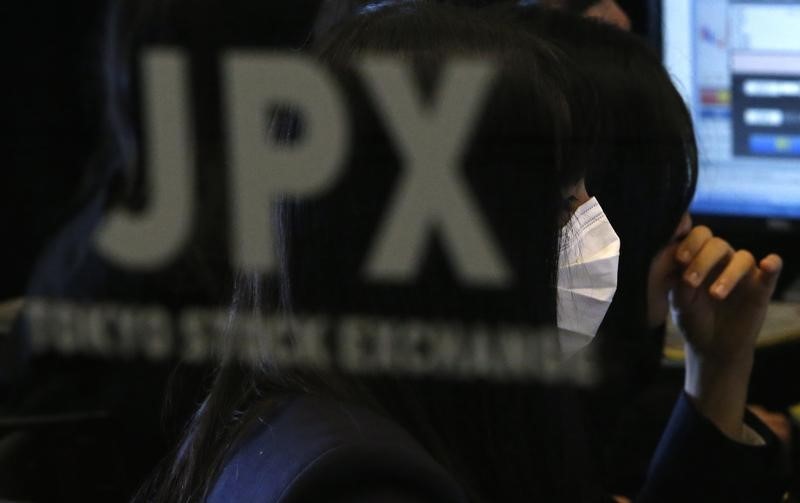Gold prices set for weekly gains on dovish Fed outlook; silver near record high
By Lisa Twaronite
TOKYO (Reuters) - Asian shares stumbled on Friday and the dollar skidded against the safe-haven yen after Switzerland's central bank unexpectedly scrapped its currency cap - jolting markets already roiled by plunging commodities prices.
Financial spreadbetters expected some of the gloom to spread to Europe, where they predicted Britain's FTSE 100 (FTSE) would open 52 to 64 points lower, or down as much as 0.8 percent; Germany's DAX (GDAXI) was seen opening 50 to 71 points lower, or down as much as 0.5 percent; and France's CAC 40 (FCHI) was called to open down 28 to 38 points, or as much as 0.7 percent lower.
"European equities are set to open lower, giving back some of yesterday's mammoth gains after a roller coaster session," Capital Spreads dealer Jonathan Sudaria said in a note.
MSCI's broadest index of Asia-Pacific shares outside Japan (MIAPJ0000PUS) shed about 0.4 percent. A resurgent yen pressured exporter shares and helped push Japan's Nikkei stock average (N225) down 1.4 percent, off steep session lows but still down 1.9 percent for the week.
The greenback touched a fresh one-month low of 115.85 yen <USD/JPY>, but was last 0.3 percent higher on the day at 116.53 yen.
"Investors will likely stay cautious against overseas developments for two to three weeks given weak oil prices and commodity price as well as the global economic concern," said Chisato Haganuma, chief strategist at Mitsubishi UFJ Morgan Stanley Securities.
Chinese stocks were one bright spot in Asia, with the Shanghai Composite Index (SSEC) gaining 0.9 percent. Sentiment got a lift from the central bank's announcement that it would increase relending quotas to banks by $8.1 billion, to support agriculture and small companies.
But the mood was kept in check by data showing China's foreign direct investment rose at its slowest pace in two years in 2014, underscoring a cooling economy.
Brent
Copper
SNB MOVE IMPLIES ECB ACTION AHEAD
The Swiss currency surged as much as 30 percent on Thursday to a high of 0.8500 franc per euro (EURCHF=EBS) after the Swiss National Bank (SNB) suddenly ditched its commitment to cap the franc at 1.20 per euro. The euro took back some of its biggest one-day drop against the Swiss franc in history, and was last up 2.9 percent on the day at 1.0196 francs.
Investors took the SNB's move as a signal that the European Central Bank would launch large-scale bond buying next week, as many had already expected, adding to pressure on the single currency.
Against the dollar, the euro slightly edged up to $1.1637 <EUR/USD> after falling as low as $1.1567 on Thursday, a nadir not seen since November 2003.
On Wall Street overnight, stocks closed lower for a fifth straight session of losses as investors digested the SNB's move, disappointing bank results and the potential impact of global economic weakness on U.S. corporate earnings.
Further undermining the dollar's attractiveness, U.S. Treasury prices rose and yields fell as investors sought the safety of fixed-income assets, with the 30-year yield (US30YT=RR) touching fresh all-time lows and the benchmark 10-year yield (U.S. 10-Year Bond Yield) at nearly two-year lows. The 10-year yield fell to 1.719 percent in Asia, from its U.S. close of 1.775 percent on Thursday.
Spot gold
